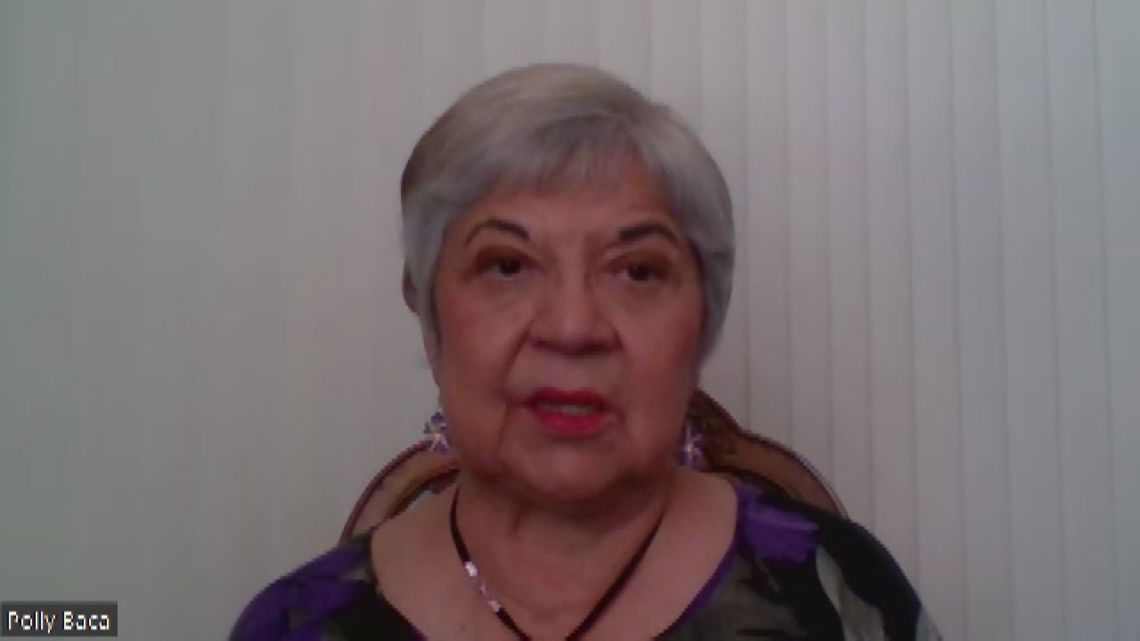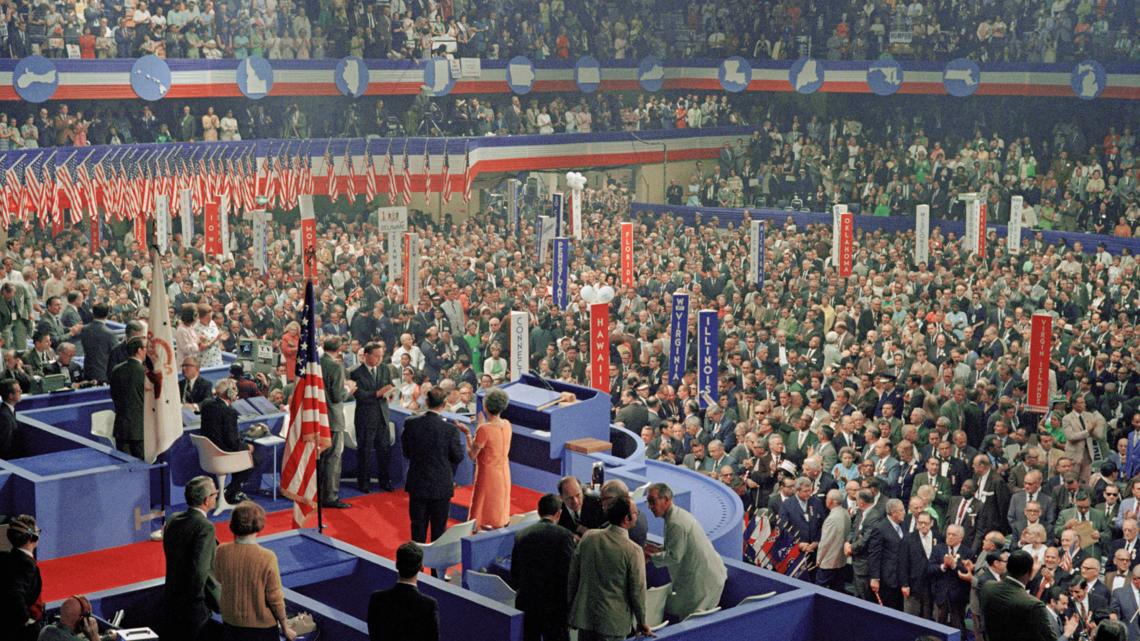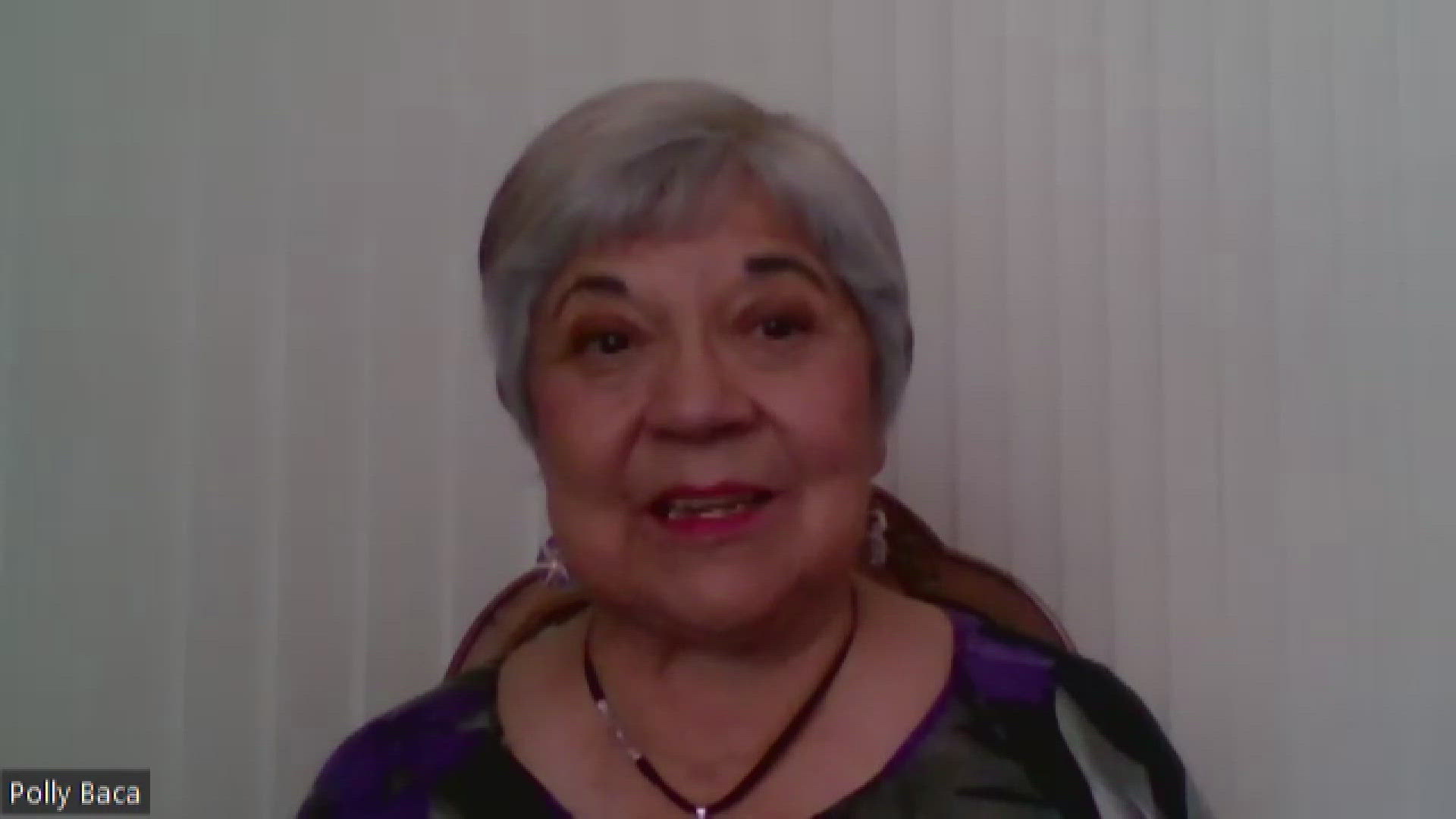DENVER — While President Joe Biden's decision to withdraw from the presidential race wasn't a surprise, political experts say it's unusual that it happened so close to an election.
Polly Baca would know.
Baca, a Colorado delegate and former Democratic state lawmaker, was the first Hispanic woman elected to the Colorado State Senate, and co-chaired two Democratic National Conventions. She said she hasn't seen an election cycle like this one in decades.
"1968," Baca said. "Now, that convention was incredible."
Just months after Robert Kennedy's assassination, Baca went to the 1968 convention as a guest of the Colorado delegates as they worked to pick a new candidate for president.
"They took a picture of me that’s on the internet standing on a chair. By the third night, I think we decided we were going to try and draft Teddy. That was before Chappaquiddick, so you know, Teddy was still a viable candidate. So some of us had decided to try and draft him, so a photograph was taken of me on a chair with a sign over my head that said 'Kennedy,'" Baca said.


Later, after missing the bus to the convention center, Baca said she found herself marching in the streets of Chicago with Vietnam War protesters before she made her way back inside to check on what was happening on the convention floor.
"As I got off the elevator on the second floor, everybody was running to the windows. So I ran with them," Baca said. "And I got to the window, I looked down and I saw this formation of policemen, Chicago Police at one end of the block to my right. And I saw them as they started to pick up speed and they ran into that crowd with their clubs swinging. I was just so lucky to get out of that crowd when they did. And I could not believe that they did that. And then, I saw a policeman grab a woman by her hair and drag her across the street. I was just so upset, and I even started to cry. I couldn’t believe it was happening.”
Now, half a century later, the Democratic National Convention will once again will need to pick a candidate for president -- once again from Chicago.
"I think this is an incredibly consequential, historic year," Baca said.
"I'm not quite sure how I would describe it other than this sense of déjà vu. It's here we go again. But I do have faith that this will not repeat the '68 convention. I really believe that," Baca said.


Elizabeth Skewes, an associate professor of journalism at CU Boulder, said this election cycle is anything but ordinary.
"This is pretty much the wildest election I've seen in my lifetime," Skewes said.
Skewes said it's unusual for a major party to be without a candidate so close to an election.
"Pretty unusual," Skewes said. "You have to go back to 1968 with Lyndon Johnson when he said in March of that year, so a few months earlier than this, that he would not run, would not accept the nomination if selected by the party. Before that, 1952 with Truman."
This time around, the Democratic candidate for president could be picked by the party right at the convention. Skewes said that hasn't happened since the 1970s.
"What we've moved to, really starting after '72 with the McGovern election because that was kind of an epic fail for the Democratic party, but Republicans moved to this, too, it's this primary system where candidates collect delegates throughout January, into the sometimes early summer," Skewes said. "But that process means the media has much more influence on the electoral process than they did when it was strictly a party process, or largely a party process."
At 83 years old, Baca said she might be the oldest delegate at the convention in Chicago next month. She said with Biden out and a woman of color now the party favorite, this DNC will be one to remember.
"Iit's going to be an exciting convention. It's not going to be dull," Baca said.

